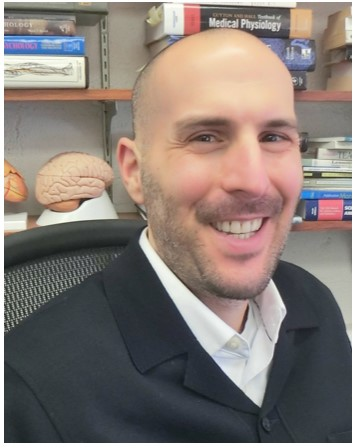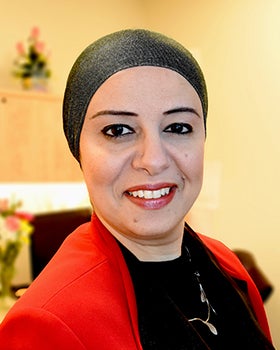Each year, the Sutton-Tyrell Lecture features a major speaker who addresses current research and challenges in epidemiology and public health. Named in honor of the late Kim Sutton-Tyrrell, a pioneering investigator, dedicated mentor, and faculty member, this series serves as an annual highlight of the department's weekly seminar series.
2024 Sutton-Tyrrell Lecture:
Neurobiology of Psychological Stress, Emotion, and Cardiovascular Disease Risk
Peter Gianaros, PhD
April 11, 2024
Peter Gianaros is a Professor of Psychology at the University of Pittsburgh, where he co-directs the NIH Cardiovascular Behavioral Medicine Research Training Program. His research focuses on the neurobiology of social health inequalities, with a focus on psychological stress, emotion, socioeconomic disadvantage, and cardiovascular health. He completed his undergraduate degree at the University of Florida and his doctoral degree at Penn State. At the University of Pittsburgh, he teaches courses on cardiovascular psychophysiology, health neuroscience, and health inequalities. He’s served as an Associate Editor for the journals Psychosomatic Medicine and Affective Science, and he was the Director of the NIH Multimodal Brain Imaging Training Program. He’s received the Herbert Weiner Early Career Award and the Paul D. MacLean Award for Neuroscience Research from the American Psychosomatic Society and the Award for Distinguished Early Career Scientific Contributions to Psychology from the American Psychological Association. He is currently the President of the American Psychosomatic Society.
- 2023 Lecture
-
 Tené T. Lewis
Tené T. Lewis
Discriminatory Stressors and Early Markers of Cardiovascular Disease: Implications for African American Women's Health
April 13, 2023Tené T. Lewis is an Associate Professor in the Department of Epidemiology in the Rollins School of Public Health at Emory University. Her research focuses on understanding how psychological and social factors contribute to the disproportionately high rates of cardiovascular disease morbidity and mortality observed in African-American women compare to women of other racial/ethnic groups. She is currently Principal Investigator of two NIH-funded R01 cohorts examining the effects of discrimination and other psychosocial factors on various indices of cardiovascular health in healthy African-American women and African-American women with Systemic Lupus Erythematosus. She was also dual-PI of a project funded by the American Heart Association (AHA) focused on understanding cardiovascular resilience in African-Americans. Lewis’ scientific work has received honors from the American Psychosomatic Society and the American Psychological Association and has been featured in the Washington Post, USA Today, Essence Magazine, JET and on National Public Radio (NPR). She is also a fellow of the American Heart Association, the Academy of Behavioral Medicine Research and is current President of the American Psychosomatic Society.
- 2022 Lecture
-
 Samar R. El Khoudary, PhD (EPI '08), MPH, BPHARM, FAHA
Samar R. El Khoudary, PhD (EPI '08), MPH, BPHARM, FAHAAn Opportunity for Intervention: The Menopause Transition and Early Signs of Cardiovascular Disease
April 7, 2022El Khoudary is a prolific researcher and publisher and serves as associate professor in the Department of Epidemiology at the University of Pittsburgh School of Public Health.
- 2019 Lecture
-
 Carol A. Derby, PhD
Carol A. Derby, PhDVascular Disease in Alzheimer's and Dementia: Opportunities for Prevention
Thursday, April 18, 2019Considering the aging of the population and life expectancy increases, the public health burden of cognitive impairment and dementia is increasing dramatically, and it is anticipated that the prevalence of Alzheimer’s Disease in older adults will triple by 2050. With the current lack of effective treatments, there is a growing emphasis on the need to identify modifiable risk factors such as vascular disease, and to intervene early.
Carol Derby of Albert Einstein College of Medicine in the Bronx shares insights on the need to identify modifiable risk factors for Alzheimer’s Disease and other forms of dementia in light of this anticipated dramatic increase in prevalence.In her research, cardiovascular epidemiologist Derby has long focused on population-based cardiovascular disease prevention, cardiovascular disease in women during midlife, and the relation between vascular health and Alzheimer’s Disease in older adults. Derby serves as research professor of neurology and of epidemiology and population health and Feil Faculty Scholar within the Saul R. Korey Department of Neurology at the Albert Einstein College of Medicine. She is an active educator and K trainee/postdoc mentor and serves as principle investigator of both the New Jersey site of the NIA-funded Study of Women’s Health Across the Nation (SWAN) as well as PI of a project utilizing ambulatory technologies to evaluate day-to-day and long term effects of sleep quality on cognitive function.
- 2018 Sutton-Tyrell Lecture
-
 Matthew Allison, MD, MPH
Matthew Allison, MD, MPHSystemic Arterial Calcification: What is It Trying to Tell Us?
April 12, 2018Matthew Allison is professor and chief of preventive medicine at the University of California San Diego and director/staff physician in the Vascular Surgery Section at the Veteran’s Affairs San Diego Healthcare System. He also directs the UCSD Women’s Cardiovascular Health Research Center and the UCSD Center of Excellence on Cardiovascular Epidemiology and Prevention. Allison holds MD, MPH, and FAHA degrees and certifications.
Allison presented comprehensive data on the relevance of vascular calcification to multiple clinical and epidemiologic questions including an exploration of the relationship with not only coronary artery disease, but also non-CVD morbidity and mortality, arterial stiffness and lower extremity peripheral arterial disease.
- 2017 (Inaugural) Lecture
-
 Susan Everson-Rose, PhD, MPH
Susan Everson-Rose, PhD, MPHPsychosocial Factors and Cardiovascular Disease:
Epidemiological and Public Health Perspectives
April 20, 2017Susan Everson-Rose (EPI '93) drew on her experience in psychophysiology, behavioral medicine, and epidemiology to discuss the roles that psychological and social factors play in cardiovascular health and disease risk. Using a Social Determinants of Health framework, she presented key findings from the Study of Women’s Health Across the Nation, the Multi-Ethnic Study of Atherosclerosis, and other epidemiologic studies that informed our understanding of psychosocial risk pathways to cardiovascular disease and lay the foundation for future work.
Everson-Rose is associate professor of medicine in the Division of General Internal Medicine and associate director for the Program in Health Disparities Research, both at the University of Minnesota.
About Kim Sutton-Tyrell
 In December 2012, the University of Pittsburgh School of Public Health mourned the passing of Kim Sutton-Tyrrell. She earned her MPH from Pitt Public Health in 1983 followed by a DrPH in 1986. She joined the epidemiology faculty in 1988 and spent the next 25 years as a dedicated investigator and teacher, rising to the rank of professor of epidemiology and vice-chair for academics.
In December 2012, the University of Pittsburgh School of Public Health mourned the passing of Kim Sutton-Tyrrell. She earned her MPH from Pitt Public Health in 1983 followed by a DrPH in 1986. She joined the epidemiology faculty in 1988 and spent the next 25 years as a dedicated investigator and teacher, rising to the rank of professor of epidemiology and vice-chair for academics.
Devoting much of her academic career to cardiovascular and women's health, Sutton-Tyrrell pioneered the uses of non-invasive technology such as carotid ultrasound and arterial pulse wave velocity in large populations to determine the risk of cardiovascular disease. She also directed data collection and analysis for large multicenter study of women's health and the cardiovascular epidemiology training program.
Not only focused on research and teaching, Sutton-Tyrrell also exemplified service in the community. Twice each year she led events where words from the hands of faculty, staff and friends--including her own handcrafted jewelry--were sold to benefit the Evelyn H. Wei Scholarship Award in Epidemiology which provides tuition support to epidemiology master’s and doctoral students who show promise for future contributions to public health through scholarship, leadership, and/or service.
Supporting departmental programs and activities, the Kim Sutton-Tyrrell Fund was established in 2013 in memory of Sutton-Tyrrell’s many contributions to the Department of Epidemiology and her commitment to the advancement of public health on both local and global levels.
Read more about Sutton-Tyrrell in the Pittsburgh Post-Gazette, Tribune-Review, or University Times.